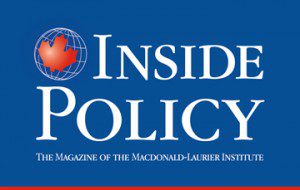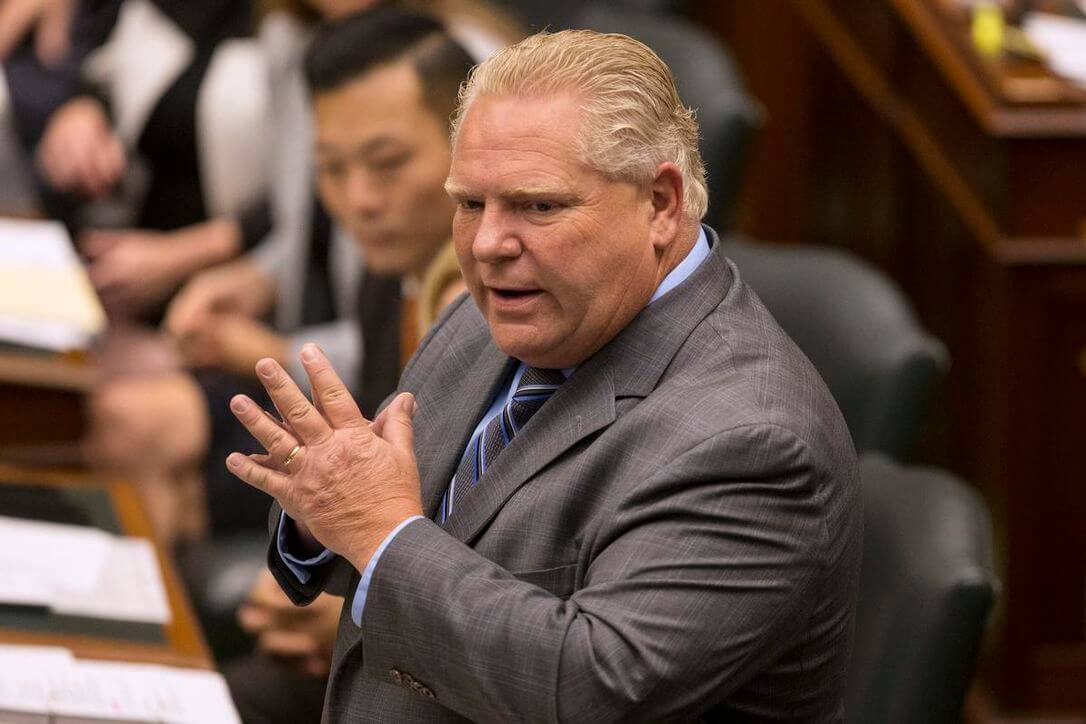 How a supposed grass-roots movement manufactures the impression of huge local groundswells of public opinion against protections for intellectual property.
How a supposed grass-roots movement manufactures the impression of huge local groundswells of public opinion against protections for intellectual property.
By Hugh Stephens, September 18, 2018
Open Media is at it again. This Vancouver-based self-described advocate of Internet freedom, an organization that claims to believe in “participatory democracy” and “freedom of expression,” has been busy manipulating public opinion and trying to influence lawmakers in various countries, including Canada, with spurious astroturfing campaigns against copyright protection.
It has been caught red-handed more than once engaging in these activities and is unapologetic, even bragging about its successes on its website using euphemisms such as “crowdsourcing” and the “engagement pyramid” to justify its actions.
What is astroturfing? This is now the term of choice to describe the use of technology to create the pretence of widespread public support, or protest. It is usually used in the negative sense, to create the impression of a “groundswell” of public opinion against a particular measure that is under public discussion.
According to the Office of the Lobbying Commissioner in Ottawa, Open Media is “a national, non-partisan, non-profit organization working to advance and support an open and innovative communications system in Canada.” But that’s not the whole story. Open Media is part owner of NewMode.net, a for-hire entity which facilitates and mounts large-scale online campaigns designed to give the impression to the target audience (e.g., Members of the European Parliament [MEPs]; Canada’s Standing Committee on Industry, Science and Technology which is reviewing Canada’s copyright laws; Members of the US Congress) that there is a rising grassroots movement, in this case against copyright protection. New Mode describes itself thusly:
We founded one of the world’s largest and most successful online campaigning organizations, OpenMedia, and led campaigns for progressive advocacy organizations and politicians. Our founders saw the power of community-driven campaigns first-hand.
Now, we’re putting the powerful tools used by the world’s leading campaigns into more campaigners’ pockets.
New/Mode was born to help progressive organizations activate grassroots power and win more change.
In a recent case of Open Media astroturfing, meticulously documented by blogger David Lowery in The Trichordist, New Mode/Open Media was behind much of the misinformation spread by anti-copyright elements in Europe against the EU’s proposed Article 13. Article 13 was one element of proposed revisions to EU copyright law that would require websites who primarily host content posted by users to take “effective and proportionate” measures to prevent unauthorised postings of copyrighted content or be liable for their users’ actions. As a result of an online lobbying campaign led by Pirate Party MEP Julia Reda and facilitated by New Mode/Open Media, which focused on the claim that Internet companies would become “censorship machines,” in early July EU lawmakers narrowly rejected the proposal. The good news is that after further discussion and amendments, it was passed resoundingly on September 12, a victory for content creators. However, further steps are still required before it becomes law and major astroturfing can be expected as opponents rally against the most recent vote.
Some of this astroturfing will undoubtedly be facilitated and directed by Open Media. As outlined by Lowery, Open Media offers the following services: one-click calling (put in any postal code that you want and masquerade as a constituent, even if you are a non-resident), one-click email, one-click faxing, “storm social” (tweetstorms), automated letters to the editor (of local newspapers in any country – take your pick), cloned websites (to create the impression of many grassroots organizations), and so on. You can get the “full toolkit” for just $529 per month. And in case you had forgotten what you were protesting against, it’s all laid out in “Suggested Talking Points.” As Lowery puts it, it’s “fake grassroots.”
Open Media has been engaging in these tactics for a while, all the time wrapping itself in the cloak of Internet freedoms. It has been behind campaigns against the Trans-Pacific Partnership (TPP) and now NAFTA. As I documented last year, it camouflaged itself as an American organization to mount a campaign against proposals to strengthen US copyright law. Open Media has been an active campaigner against the proposal launched by a coalition of Canadian cultural industries, (known as FairPlay Canada) ranging from the CBC to Canadian Asian media, major Canadian ISPs such as Bell and Rogers, cinema chains and TV production companies and others, to establish a mechanism to recommend to the CRTC that offshore websites blatantly and overwhelmingly based on pirated, copyright infringing content be blocked in Canada.
Just in case those visiting the Open Media website cannot remember precisely why they are protesting a proposal that aims to limit illegal activity, Open Media has provided the following inflammatory and inaccurate talking points:
This proposal would result in sweeping Internet censorship, penalize everyday online activities, and threaten Canada’s Net Neutrality rules that keep the Internet a level playing field for all. This is simply unacceptable, and not the Canada that I want to live in….This proposal is downright dangerous. It’s a slippery slope to censorship. To start blocking one type of content opens the door for all kinds of other requests to block content — some of which may be legal, but just unpopular…This goes against free expression, Net Neutrality, and the open Internet as a whole — it even has the potential to violate the Charter of Rights and Freedoms.
All one had to do was sign the petition and click, allowing Open Media to generate several thousand “submissions” to the CRTC on this topic. MLI Munk Senior Fellow Richard Owens, one of Canada’s leading experts on IP law, identified this phenomenon clearly in his own submission to the CRTC on the FairPlay Canada proposal, dissecting the false information provided by Open Media and showing how 25 percent of the submissions received by the CRTC could be traced directly to Open Media’s website and Reddit feeds, all based on incorrect and misleading information.
It is not just that Open Media is actively engaged in subverting the political process, a fact that has now been documented by outlets such as the Times of London, Daily Mail and others, but that their self-proclaimed motivation is to undermine decision-making based on facts, reason and logic, instead “framing” the issues to substitute “morals, values, and identity.” In other words, their plan is to use emotive and hyperbolic slogans to overcome the facts. If you don’t believe me, have a look at this slide deck on how to mount an astroturfing campaign previously available on Open Media’s website. Who needs facts, reason and logic? Bring on the slogans!
What happens when it’s time for these hordes of supposedly passionate defenders of “online rights” to show themselves? They usually number in the dozens, not tens of thousands. In the case of the “Day of Action” against the EU Copyright Directive organized last month in cities across Europe, turnout ranged from a total no-show in some cities to a maximum of 100 people in Berlin, the supposed centre of the protests. Compare this to the over 6 million emails received by European lawmakers protesting the EU Copyright Directive, and you get some idea of the power of bots.
This is not just happening in Europe. It is happening in real time in Canada, powered by Open Media. The most recent iteration occurred just recently when Open Media was behind a swarm of more than 22,000 emails sent to the office of Foreign Affairs Minister Chrystia Freeland proclaiming that NAFTA would be a “disaster for Canada’s digital rights.” Using the usual hyperbole, Open Media’s online campaign, which urged people to send an email to Ms. Freeland (with just one click), claimed that the terms of the just-released US-Mexico agreement would “hurt the middle class and working families, cost our economy hundreds of millions, and greatly restrict our freedom to express ourselves online.”
Open Media claimed that the proposal includes a notice-and-takedown regime (true for Mexico, but not necessarily for Canada which negotiated a different outcome in the TPP) and extends copyright terms to 75 years. The latter was an inaccurate representation of what was published (see further analysis of what was proposed here), although extending the term of copyright protection in Canada would be of benefit to Canadian creators. Not content to be flinging around inaccurate information, the Open Media pitch added the ominous phrase, “and that’s only what they’re telling us. Even more disastrous measures could be hidden in the secret details.”
As Blacklock’s Reporter has revealed, the recent email swarm almost equalled all the other traffic on this issue received by Global Affairs since June. Worryingly, as David Lowery recently demonstrated, the Open Media website allowed one to masquerade as a Canadian resident and submit comments over, and over, and over again, with just a click of the back button. Laura Tribe, Open Media’s Executive Director admitted to Blacklock’s Reporter that it was possible for one person from any location to send multiple emails to the Minister’s office (while pretending to be Canadian), but she noted that the feature had now been disabled. Long overdue I would say.
It’s time to call out the tactics of spamming government and swamping the consultation process with automated simplistic messages. And it’s time to put facts, reason and logic – instead of inflammatory slogans, misinformation and crass manipulation of public input – back at the centre of policy debates when it comes to Internet governance.
Hugh Stephens is a copyright blogger (www.hughstephensblog.net), former media executive, and an Executive Fellow at the School of Public Policy at the University of Calgary.





